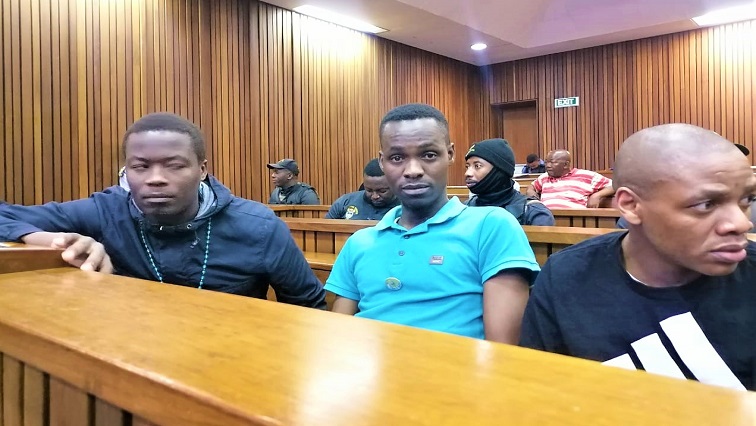The first time that the lead investigator in the Senzo Meyiwa murder case, Brigadier Bongani Gininda, met Colonel Mohale Raphadu – the officer who took down Bongani Ntanzi’s confessional statement – was when Gininda went to collect the statement from Mohale. This clearly contradicts Ntanzi’s version that both were present at one of the places where he was assaulted and forced to sign prepared declarations.
Gininda has been giving testimony at the Pretoria High Court, hearing arguments on the admissibility of confession statements by accused 1 and 2, pointings out by accused 1, as well as warning statements by the three other accused.
He says he first spoke to Raphadu when he was looking for a Peace Officer to record Ntanzi’s statement after the accused confided in him in Carlentonville on the 18th of June.
“In the morning, I was informed by Mogane that indeed the accused was taken to Col Raphadu. My lord, I should also mention that Col Raphadu was also independent from the investigations and I had never worked with him in my whole career. The first time I spoke to him was on the phone and the first time I saw him was when I went to get the confession statement from him after he had taken it down from the accused,” says Gininda.
Gininda says he had travelled to Carletonville to confirm Ntanzi’s alibi at Sibanye Stillwaters Mine – Ntanzi’s former workplace – relating to his whereabouts on the day the former Orlando Pirates goalkeeper was shot and killed.
The head of the National Cold Case unit says it was following information that Ntanzi was not at work on the day of Meyiwa’s murder, as per the human resource department at Sibanye, that Ntanzi chose to confess to him.
“In essence, my lord, the alibi was false. My lord, I confronted him with this new information and he didn’t say anything to that,” he says. “I also confronted him with a sketch of a suspect who was wearing a hoodie which was part of the docket. And I informed him that I was of the view that the suspect with the hoodie resembled him.”
According to Gininda, Ntanzi knew about the identikit he presented but said it was a case of mistaken identity.
“I warned him again and told him he needed to tell the truth because all that he was saying could eventually work against him. We then left it at that,” says Gininda.
But then a change of heart occurred, according to Gininda. “As I left, one of the officers called me and said the suspect wanted to speak and when I went back to him, what he told me was tantamount to a confession. I warned him again and he said he just wanted to tell the truth because the lies were not working for him. He was also prepared to an officer who was not part of the investigation. We parted with that understanding that I would arrange for that officer and that Sgt Mogane would take him to that particular person,” he explains.
Live stream:
According to the defense, on the day Ntanzi signed the confession statement at Moroka Police Station, Gininda had arrived with Sergeant Batho Mogola in Orlando having prepared confession statements and Raphadu was also present on this occasion.
Gininda has not yet asked a direct question to this version, however, his version that it was only on the day he picked up the statement from Raphadu that he’d met him for the first time would contradict the defense’s version.
He says the first time he spoke to the accused was when he spoke to Ntanzi in the presence of Sergeant Vusumuzi Mogane and the late Sergeant Steven Mabena.
“My first interaction with (the) accused was on the 18th of June in Carletonville and he was in custody at the time. I was introduced to him and I showed him my appointment card and read him his constitutional rights,” says Gininda.
The trial continues.


